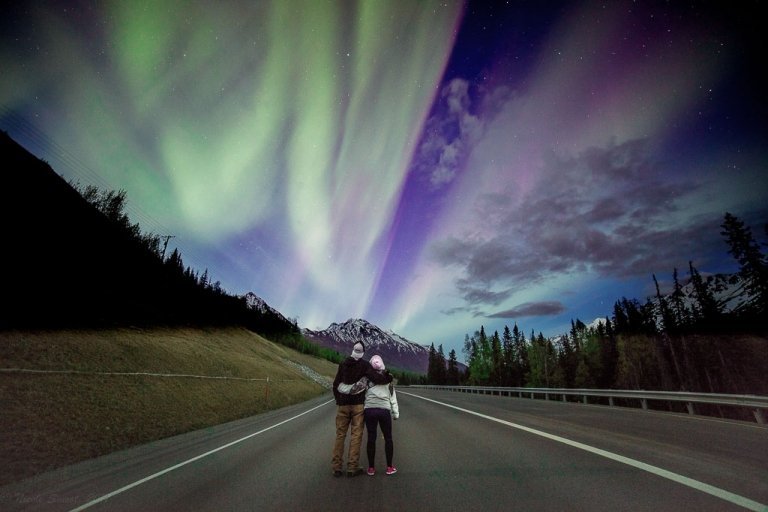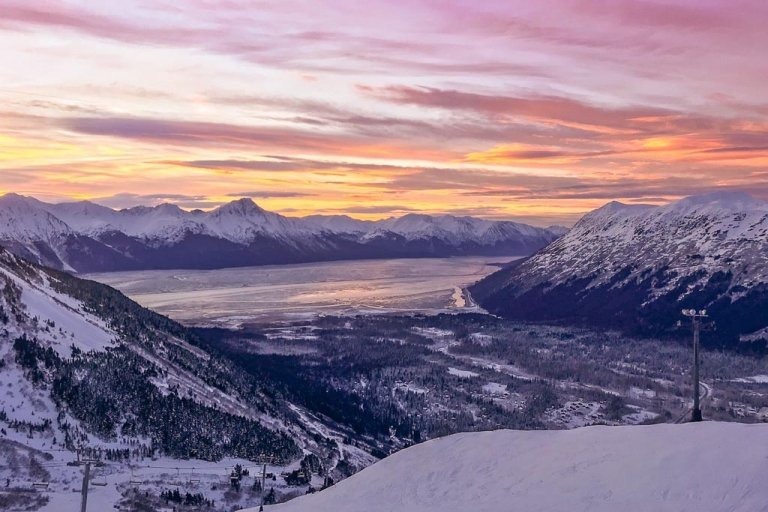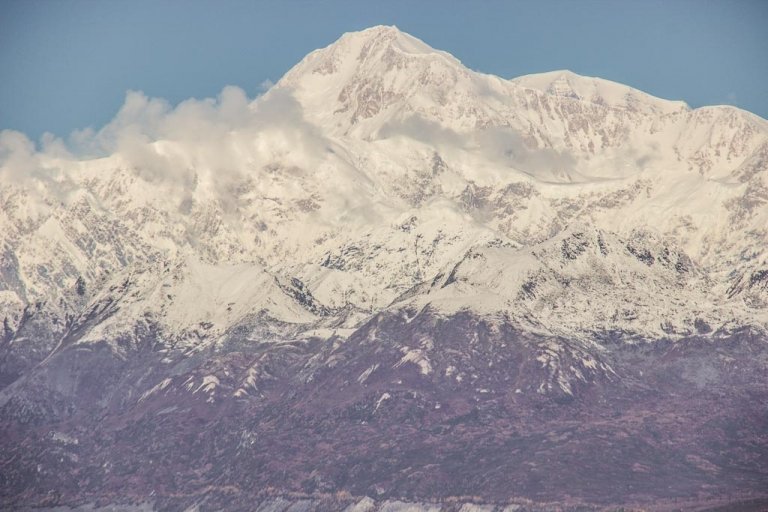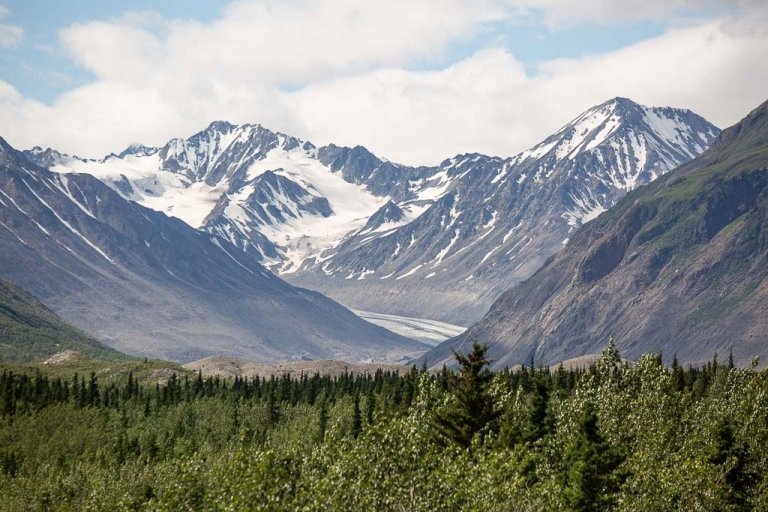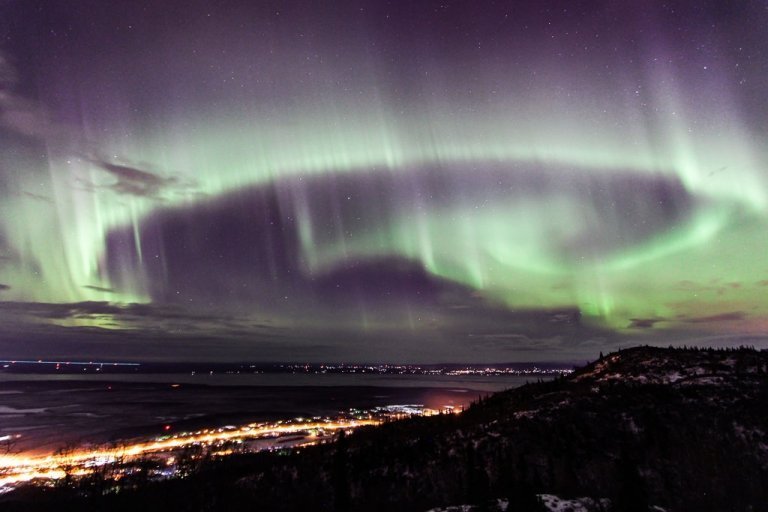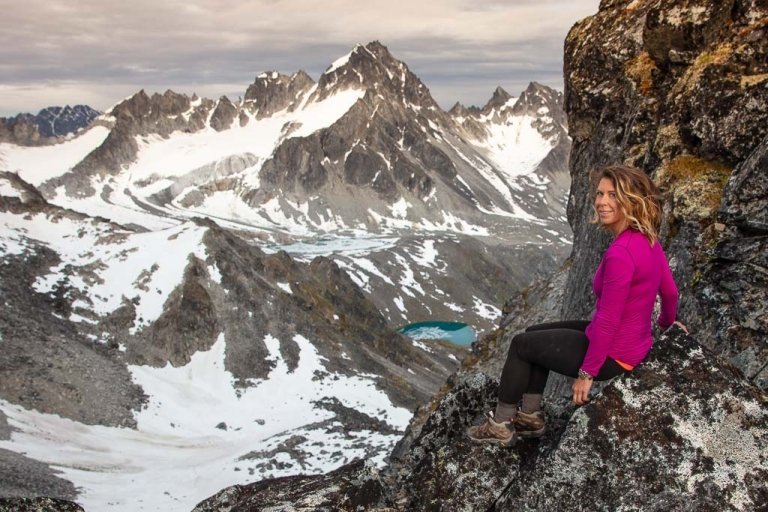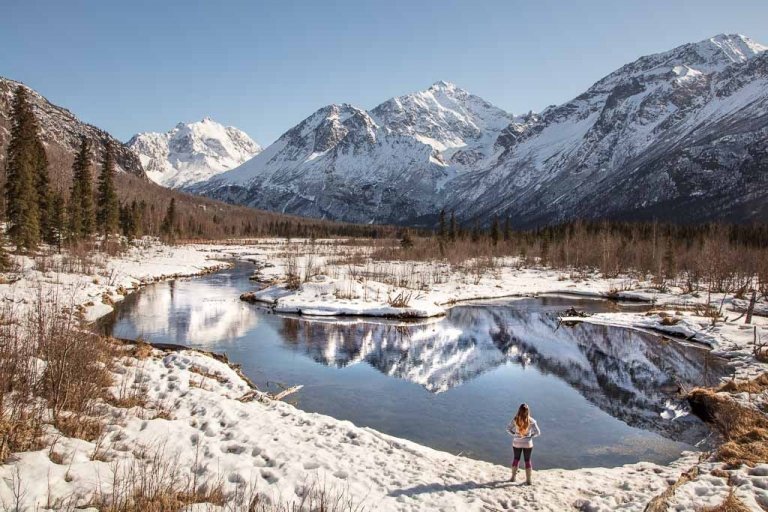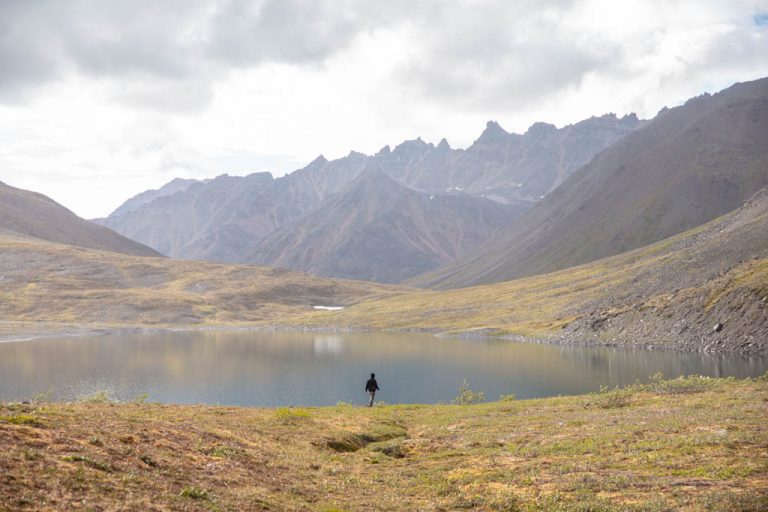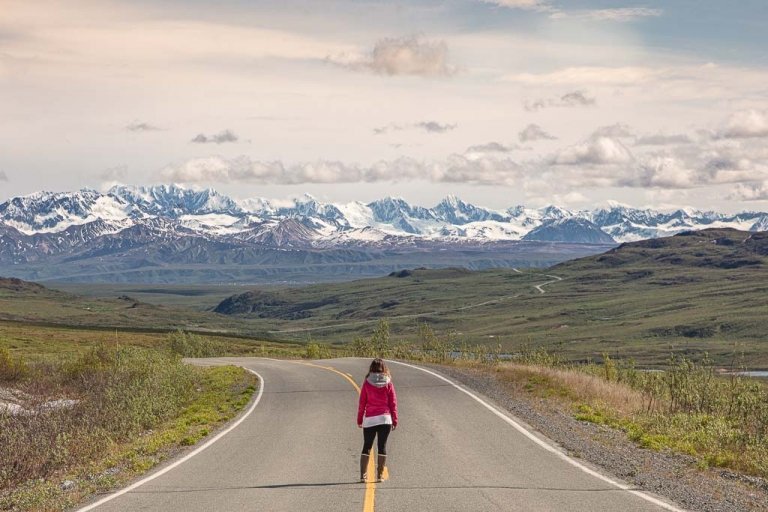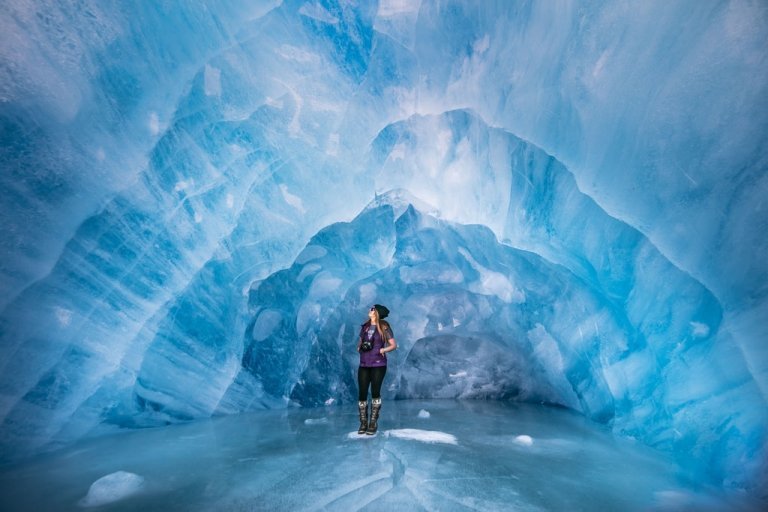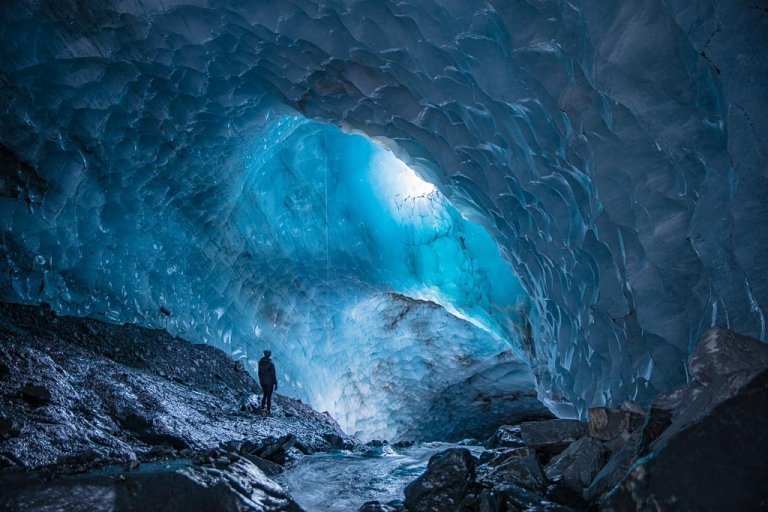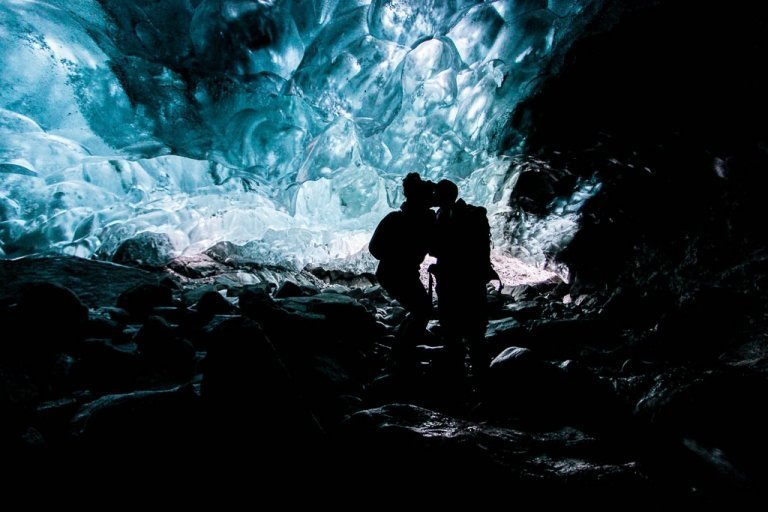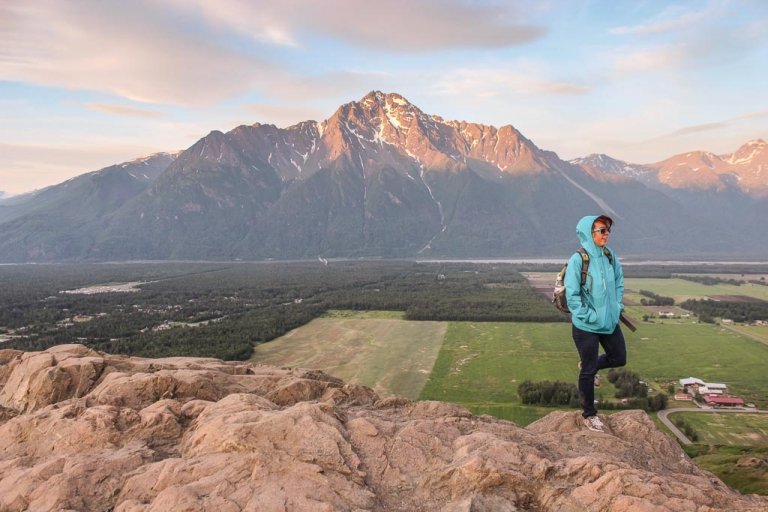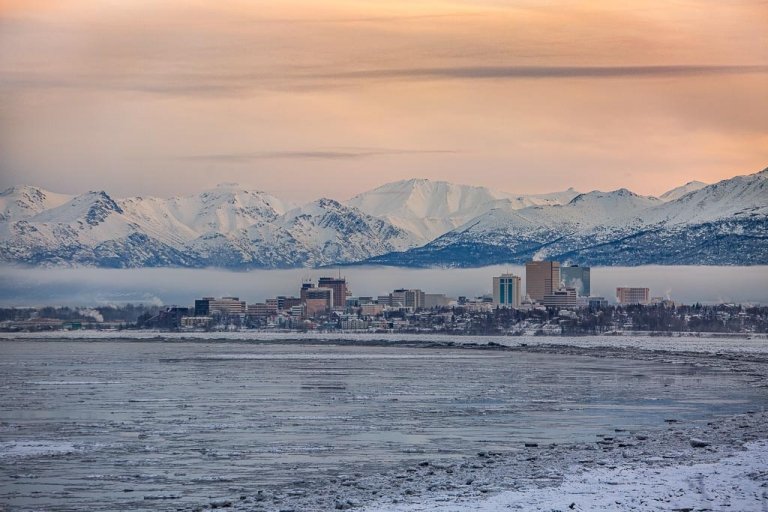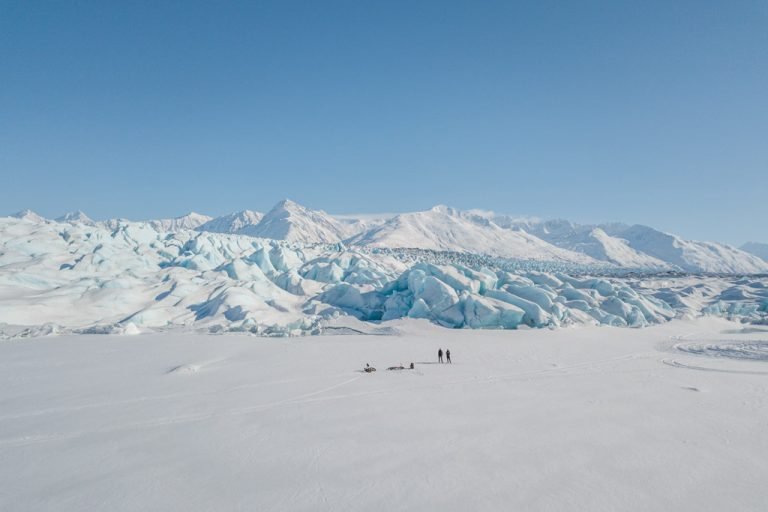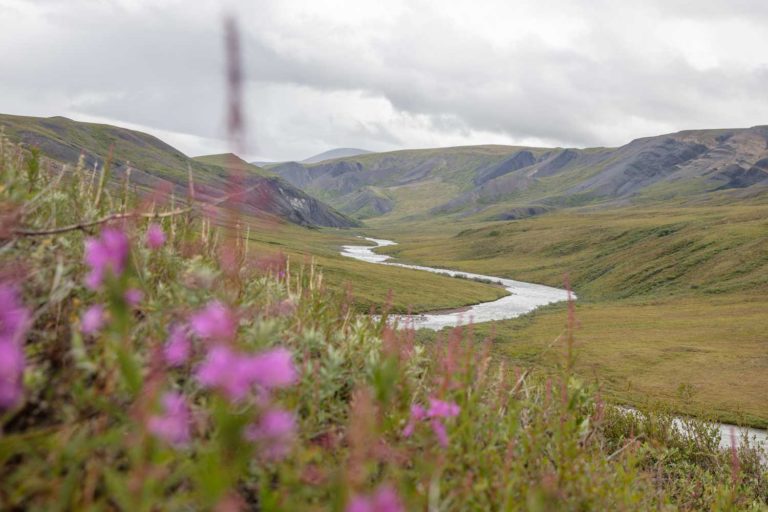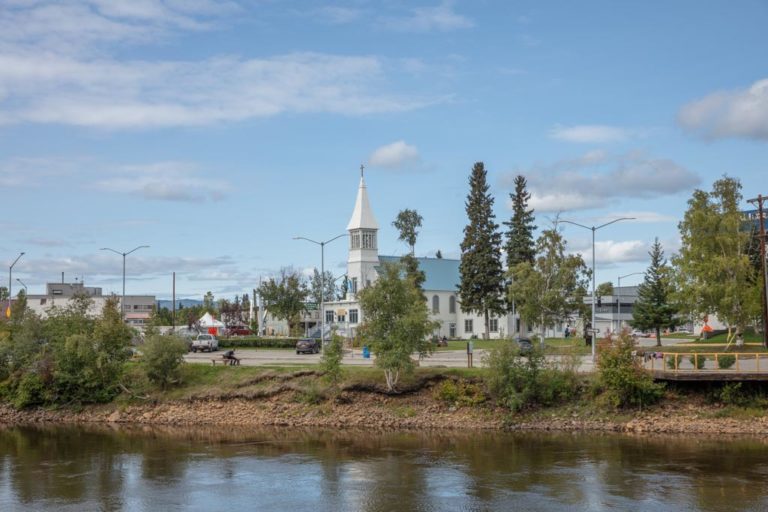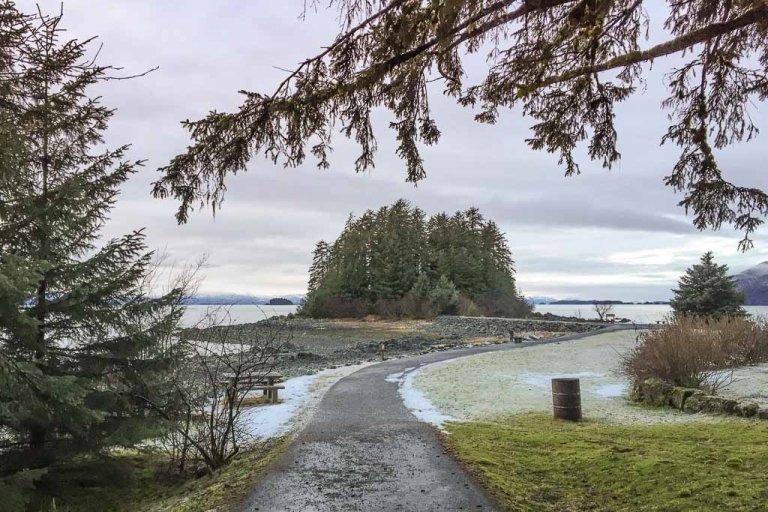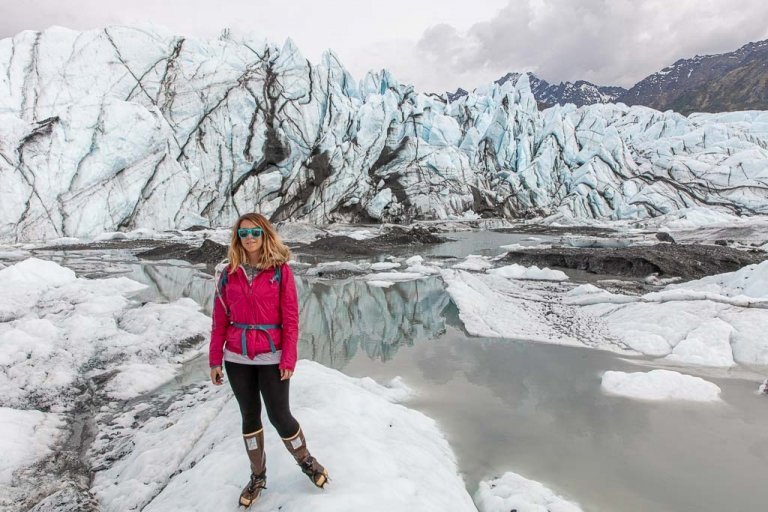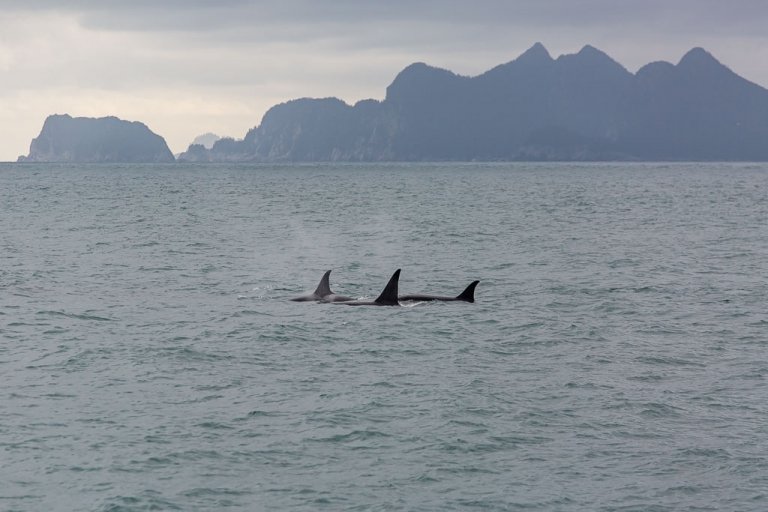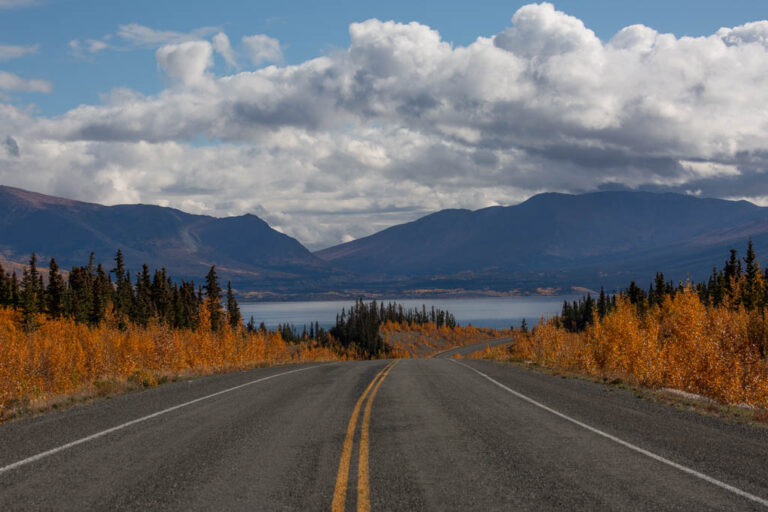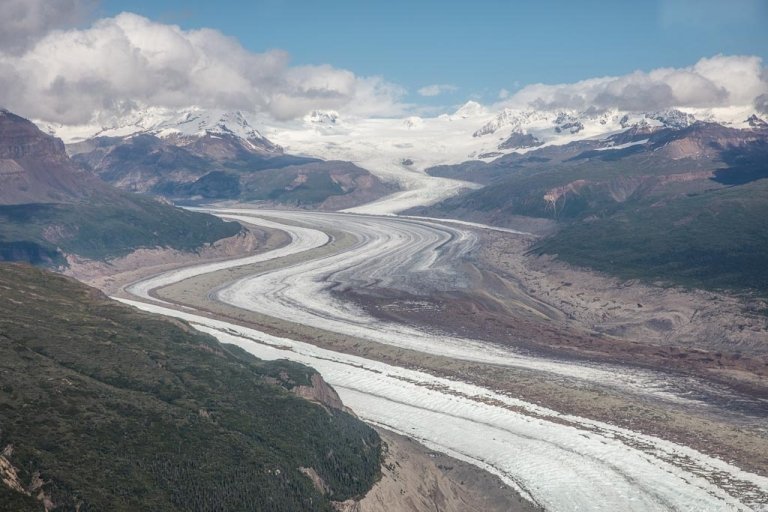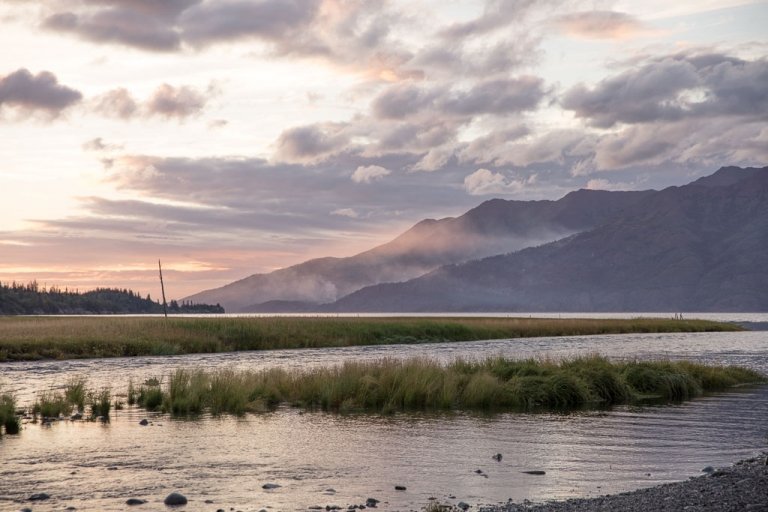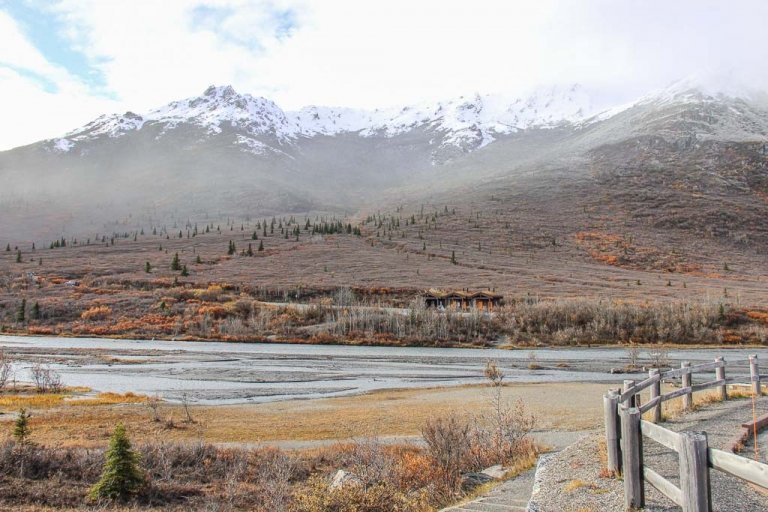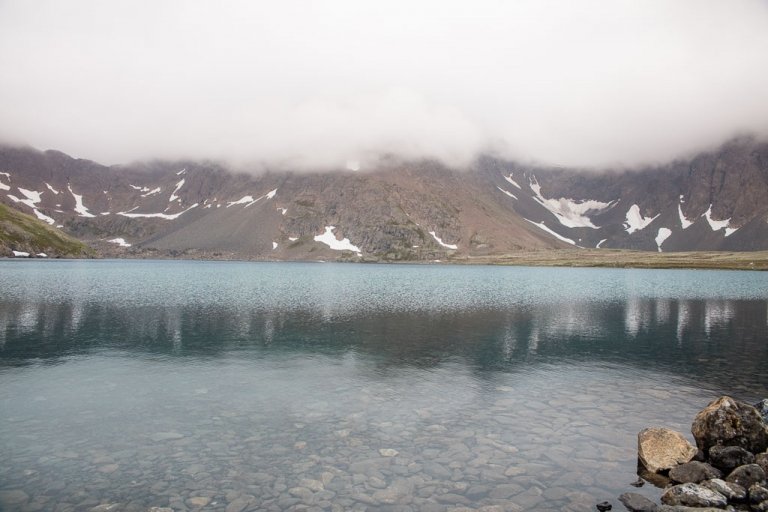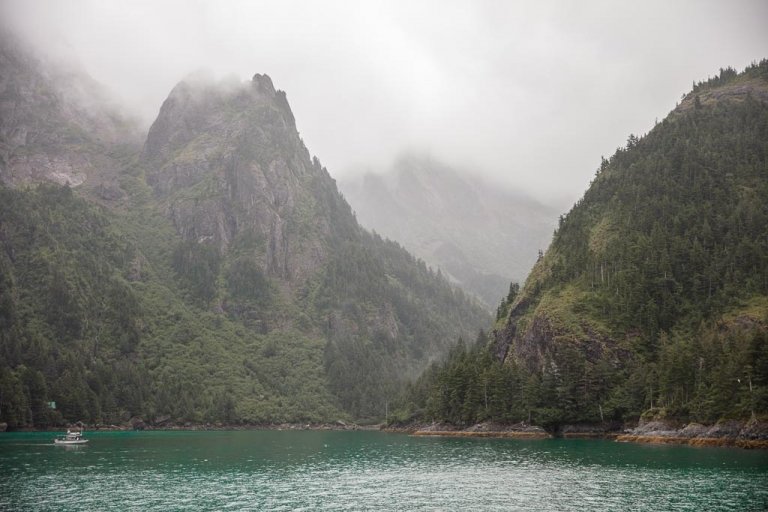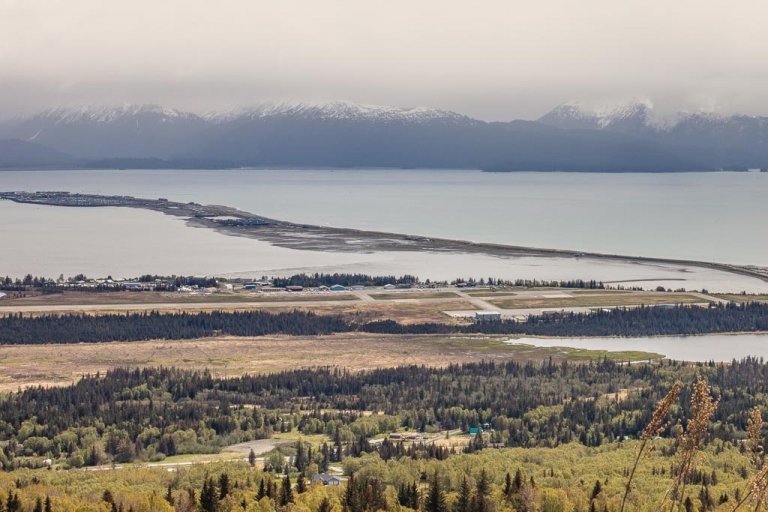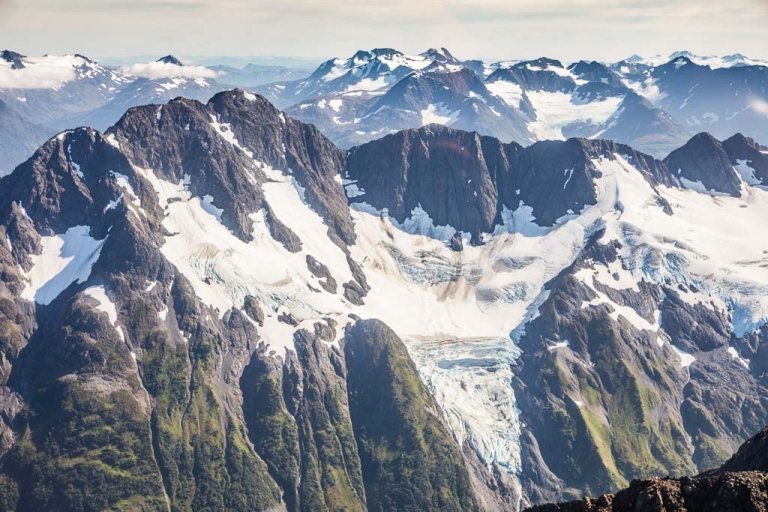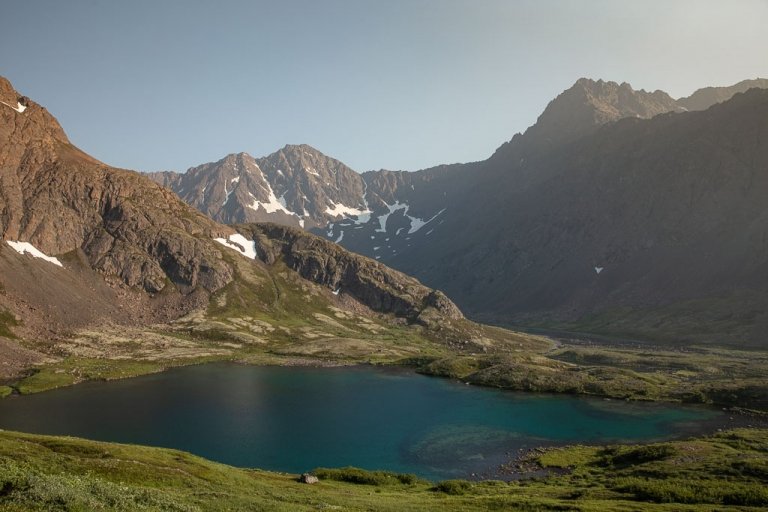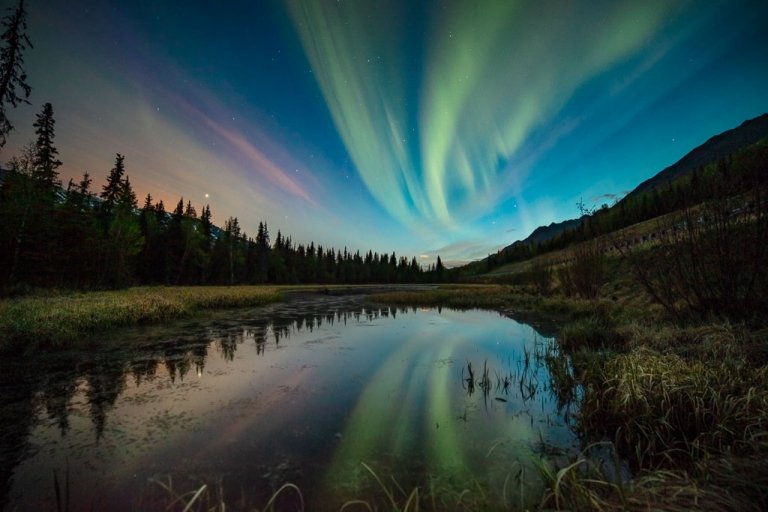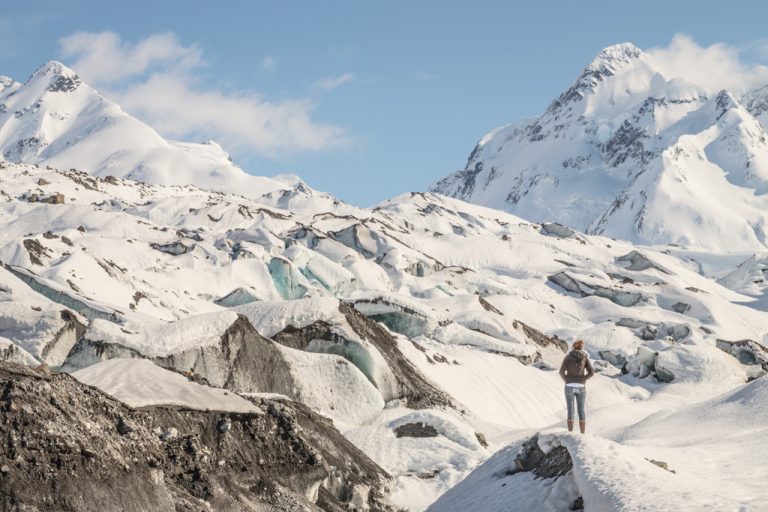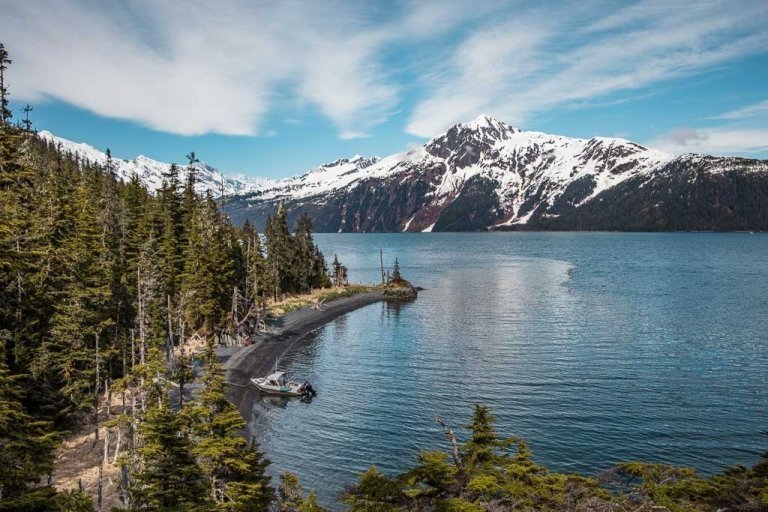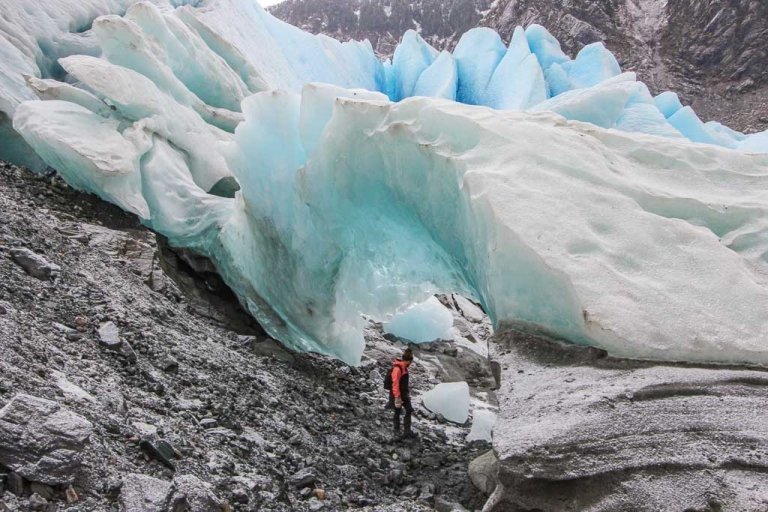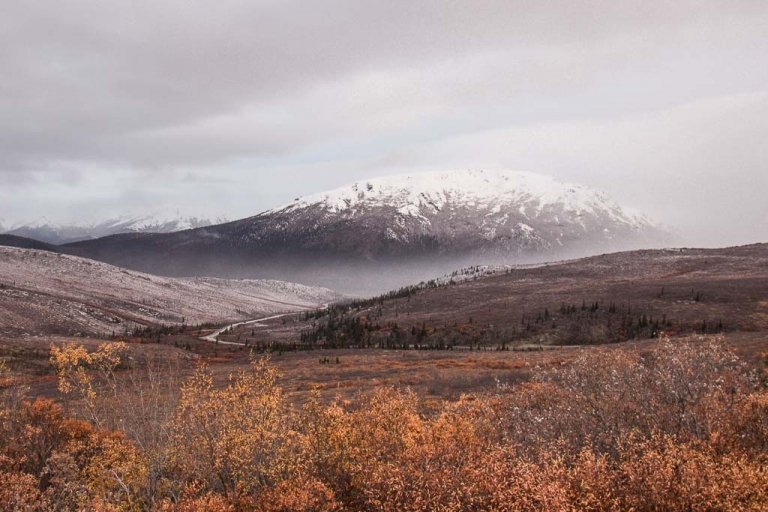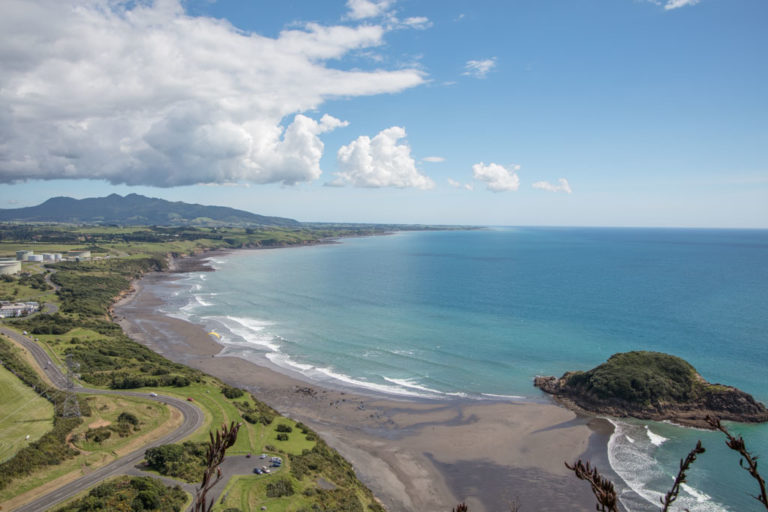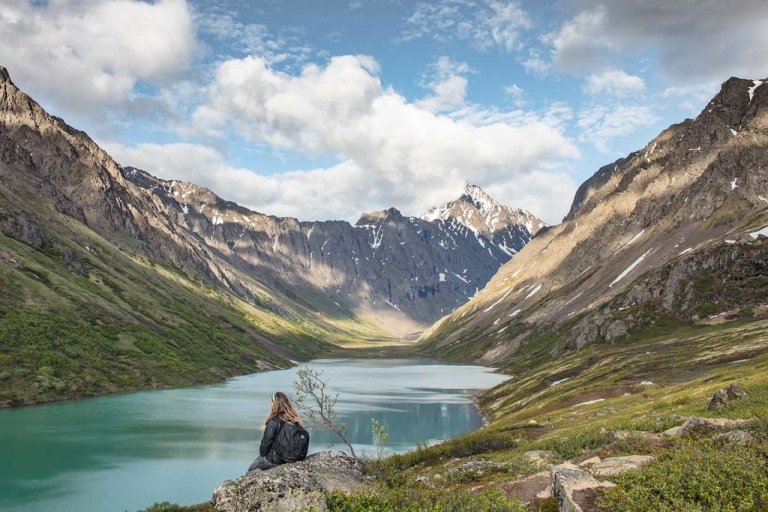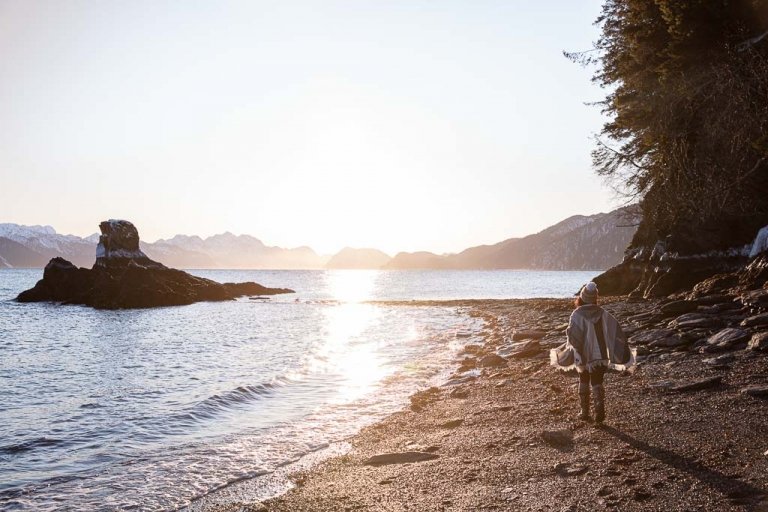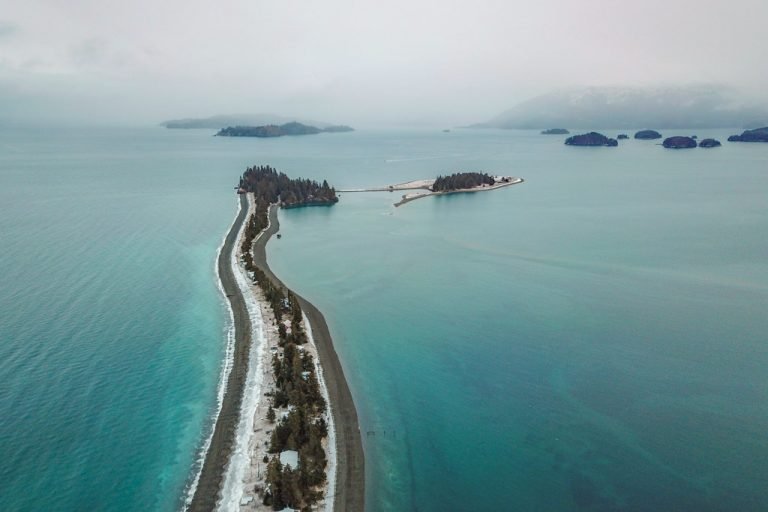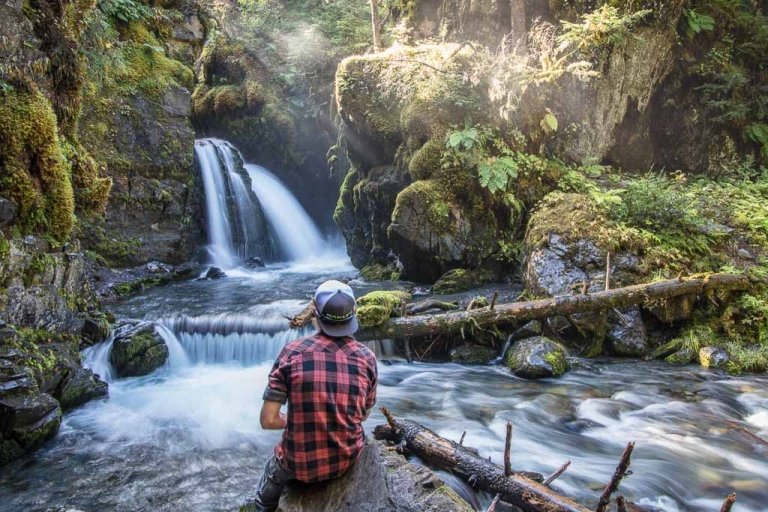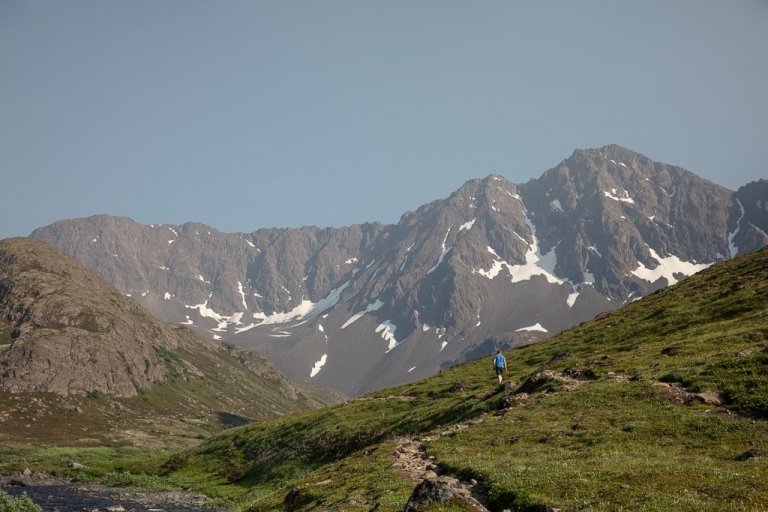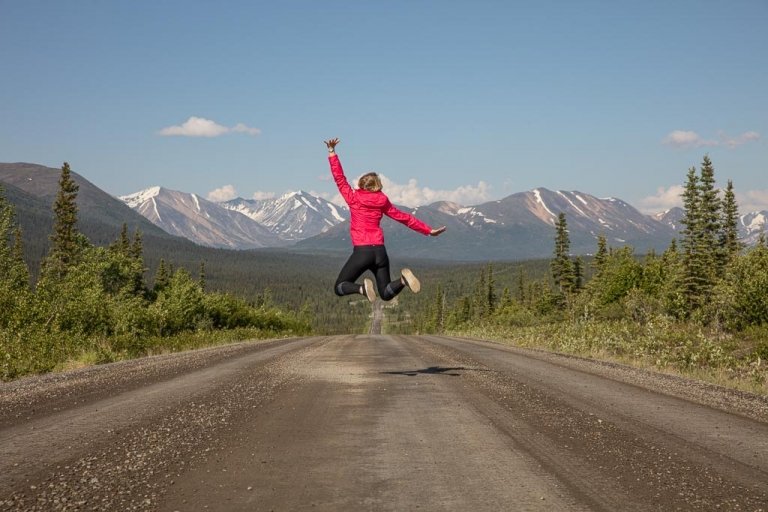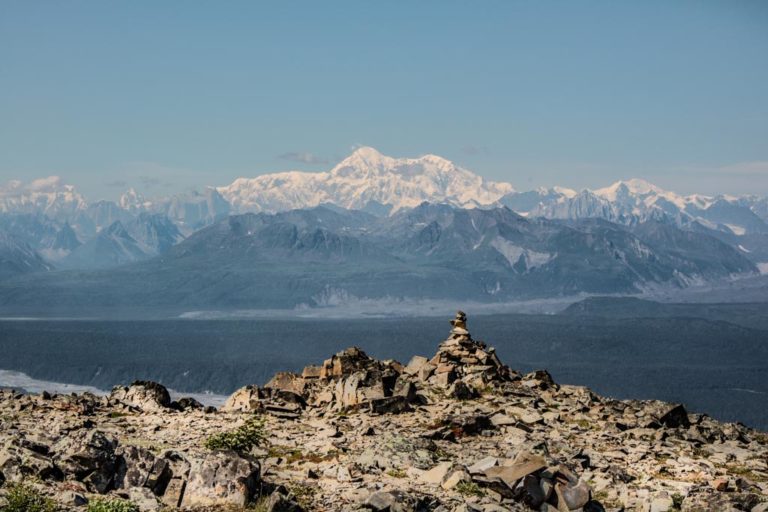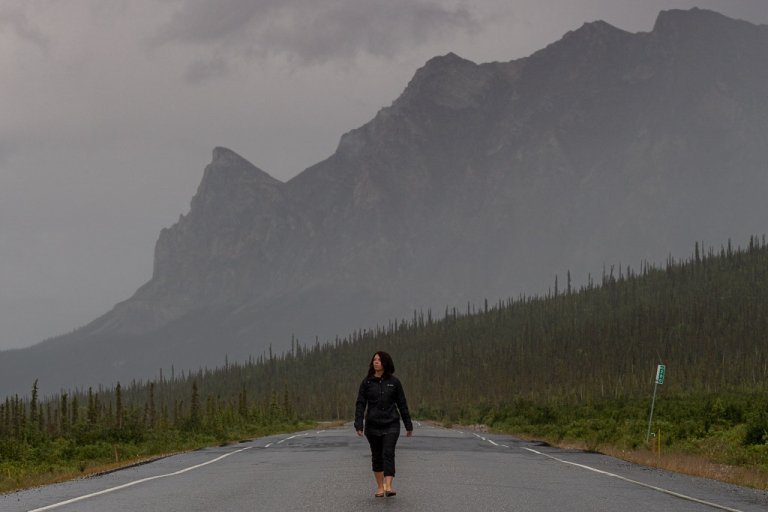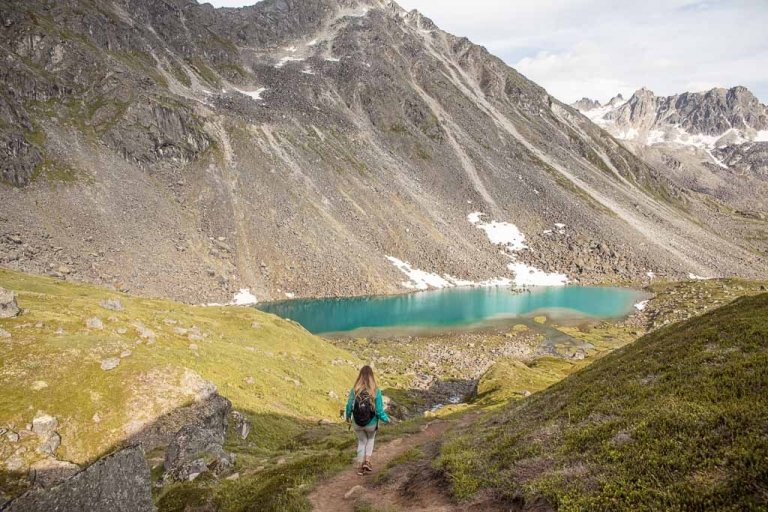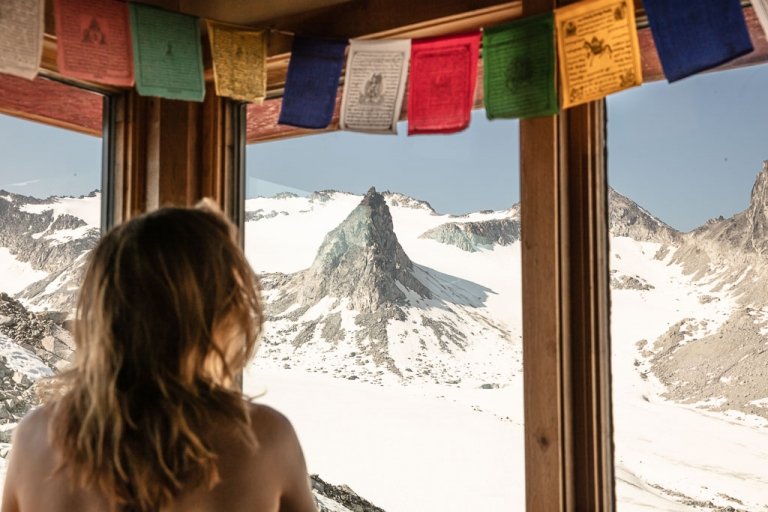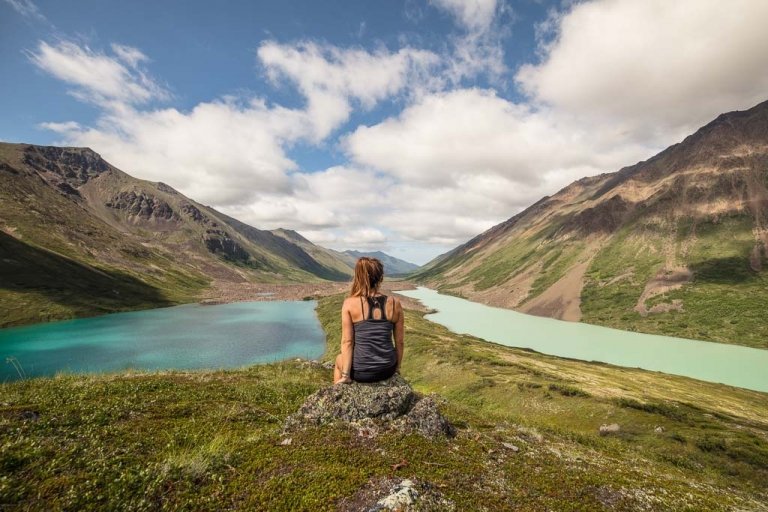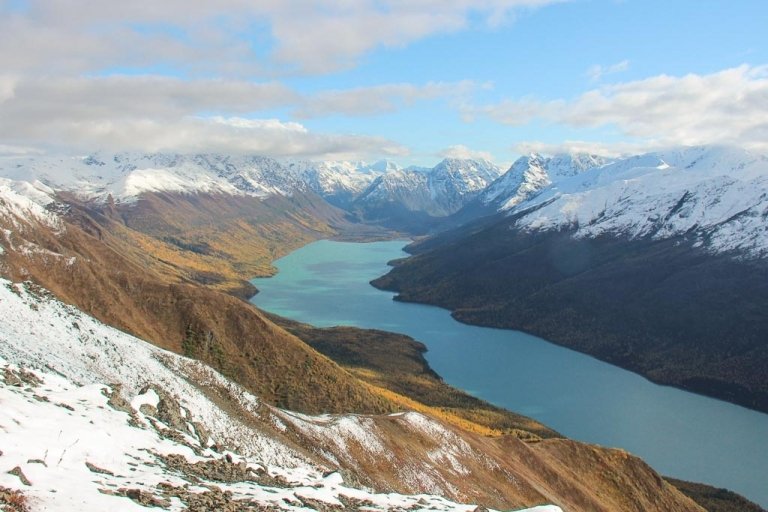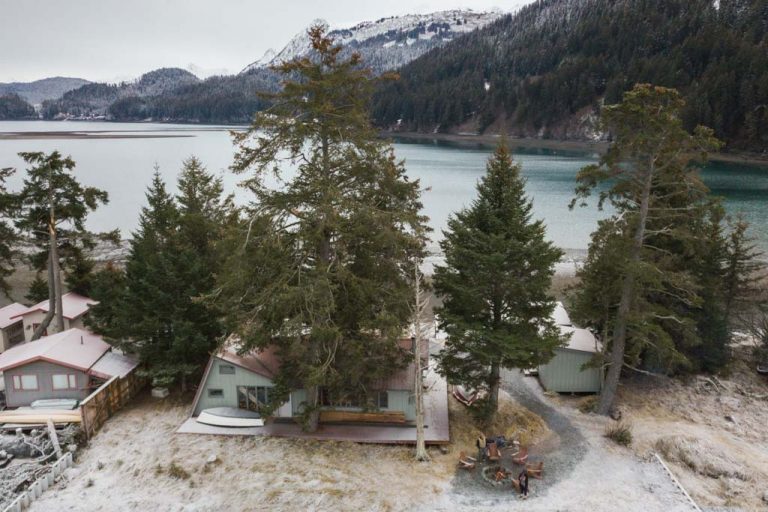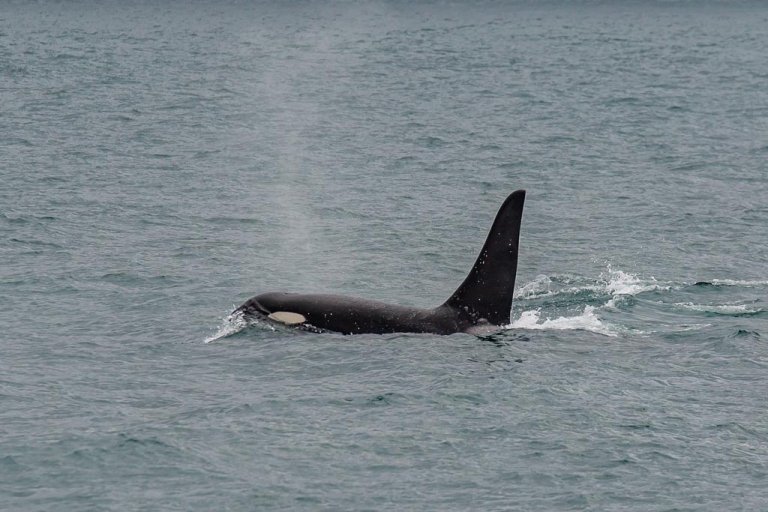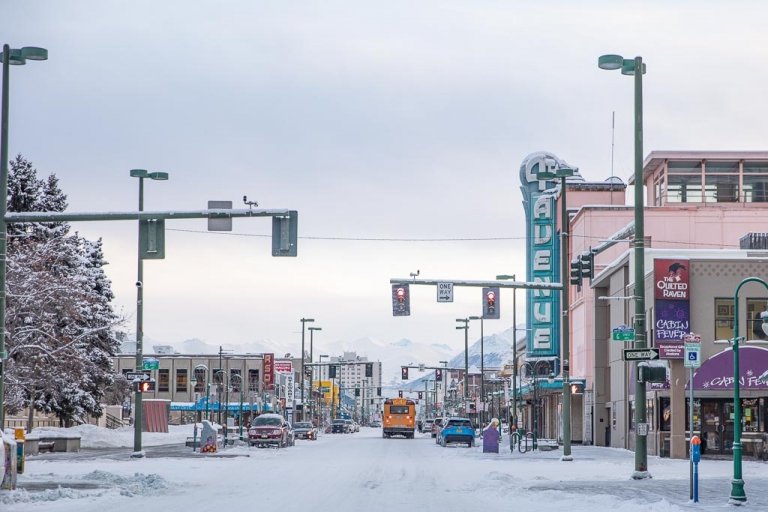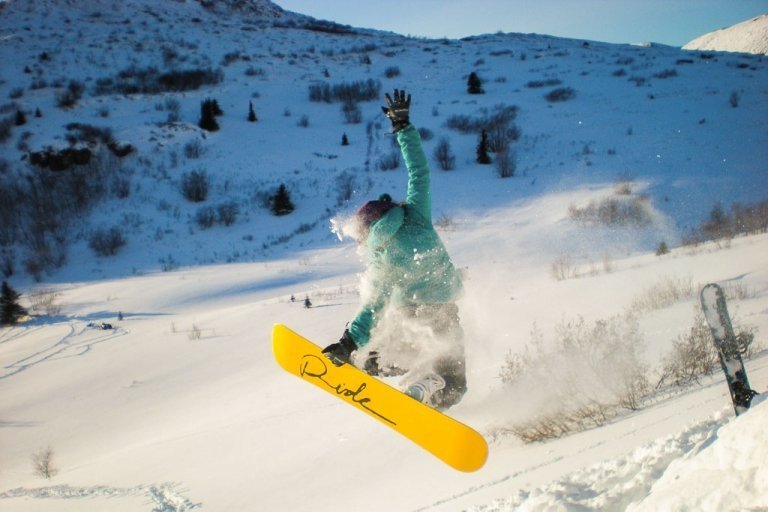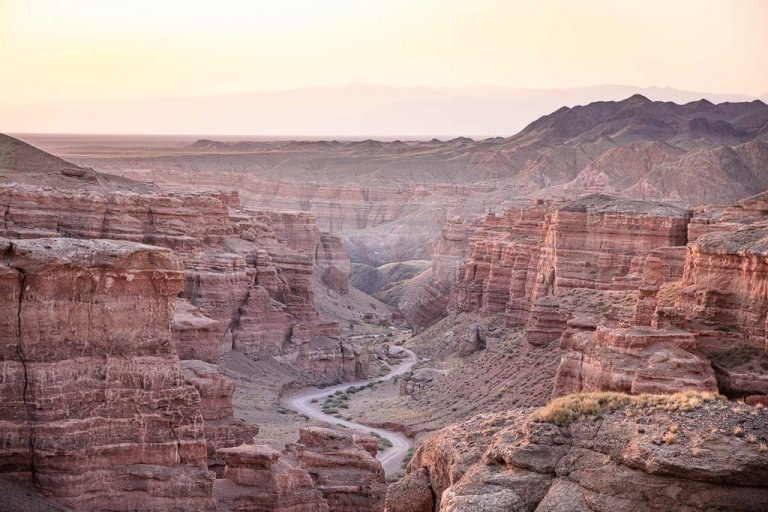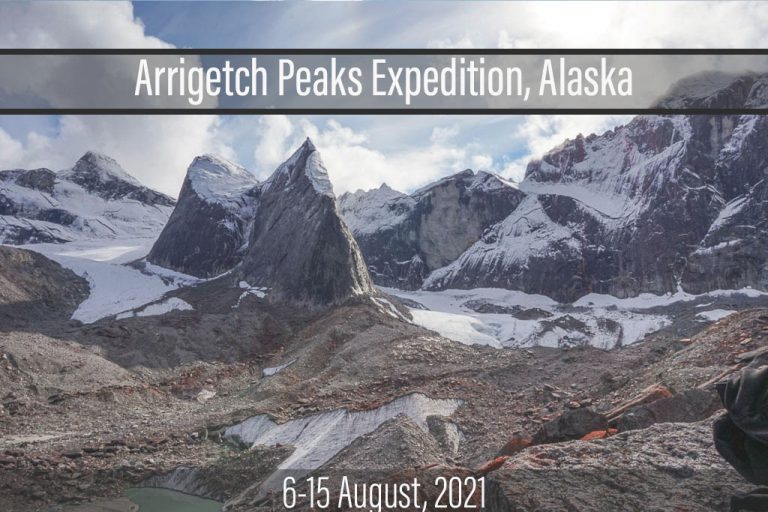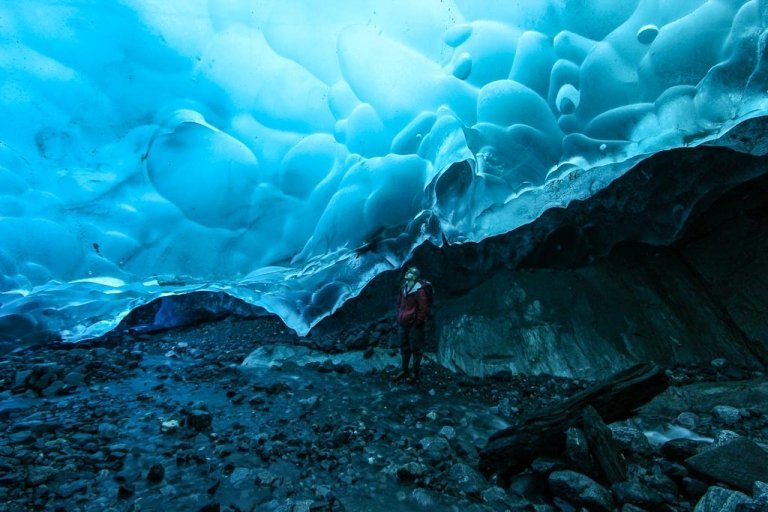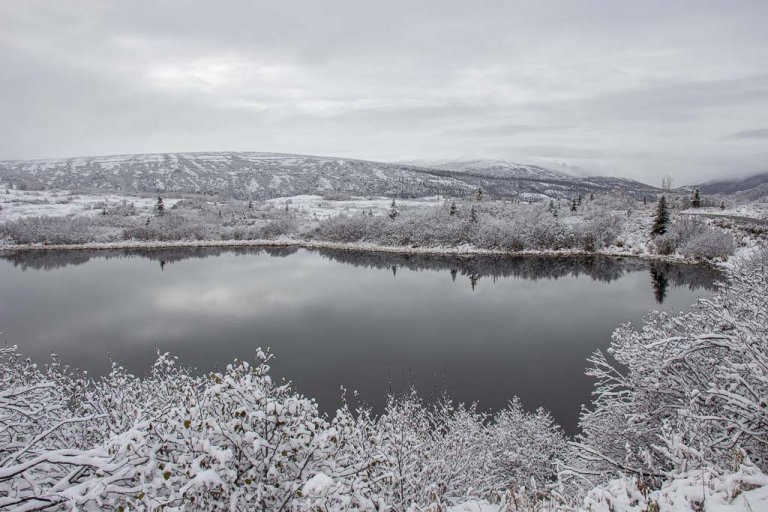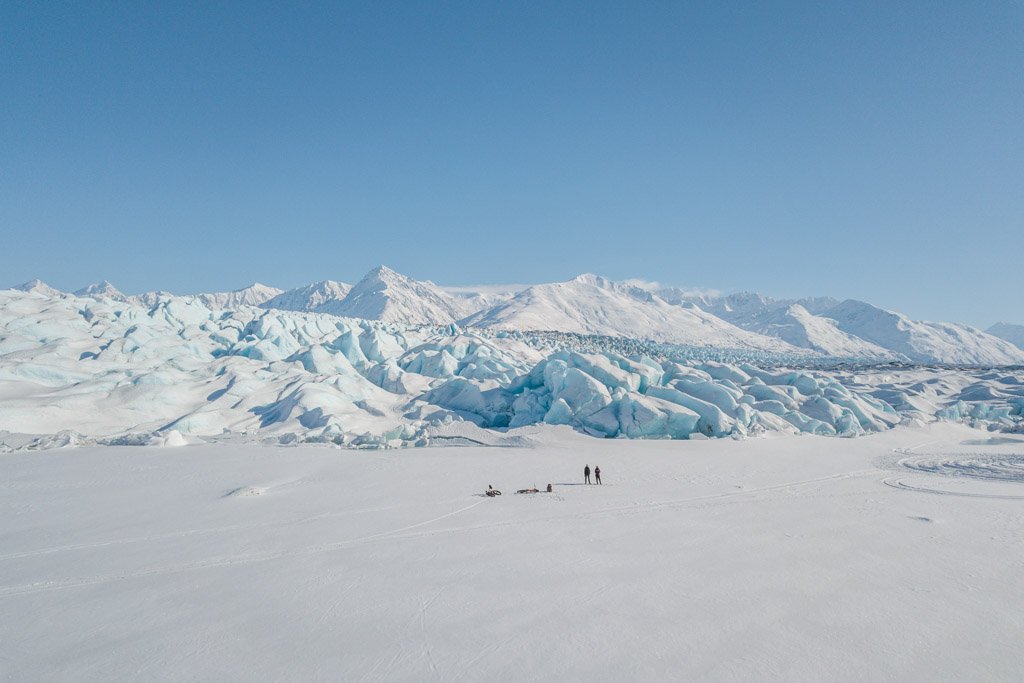
Biking to Knik Glacier in the Winter
(& other ways to get there)
Updated March 2024, Biking to Knik Glacier in the Winter was originally published in April 2021
Alaska is home to a dizzying number of glaciers, with some being more accessible than others. Knik Glacier is an amazing option if you’re looking for a winter fat tire bike adventure.
If you plan to visit Knik Glacier by fat tire bike, know that it’s only possible in the winter when Knik River is frozen. This means typically you’ll need to take on a trip to the glacier December-March. Know that fluctuations in temperature and erratic weather can lengthen or shorten this window of time.
I’ve had the chance to visit Knik Glacier most recently by fat tire bike after my friend Tay and I borrowed a couple of bikes from friends and family. In the past, I’ve also visited by 4WD and by flight, so I’ll cover a little info on those in this post too.
Need Travel Insurance and Evacuation Services for Alaska?
Start shopping for travel insurance plans over at IATI Insurance. Readers of the Adventures of Nicole get a 5% discount off your plan.
The Adventures of Nicole partners with Global Rescue to offer the world’s leading medical evacuation and security advisory services. To travel with peace of mind, shop evacuation coverage at Global Rescue.
Planning a trip to Alaska? Check out my Alaska travel guide
How to get to Knik Glacier
There are a few different ways to access Knik Glacier depending on what time of year you’re visiting.
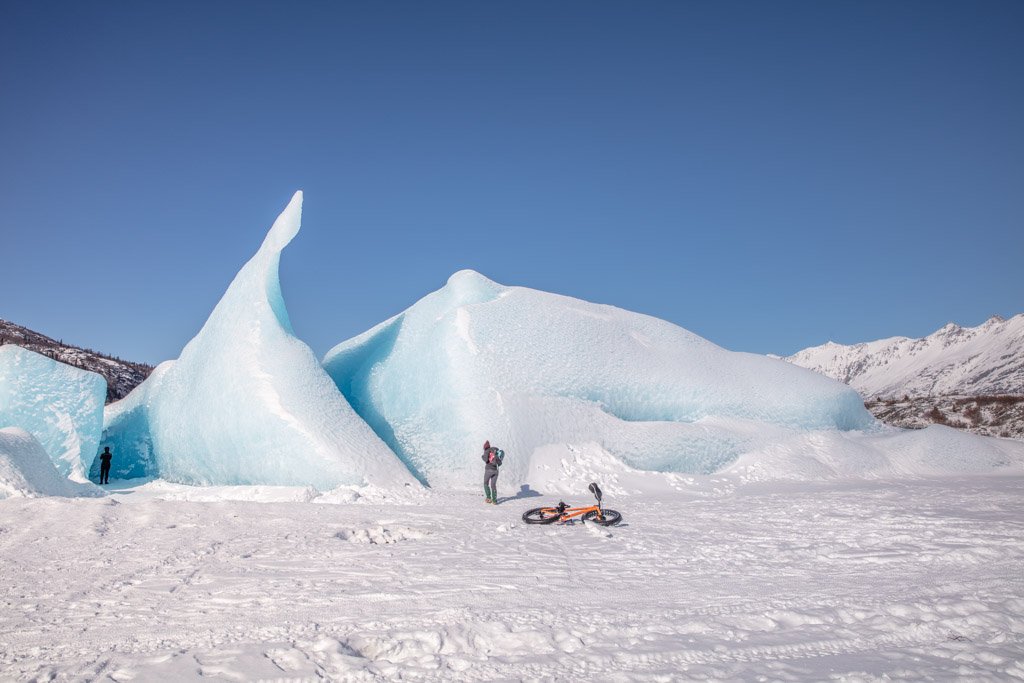
Fat Tire Bike or Cross Country Skis
In the winter months (typically December-March) it’s possible to reach Knik Glacier by fat tire bike or cross country skis using the Hunter Creek access point. The path is well-beaten, though you’ll want to avoid going after a bigger snowfall.
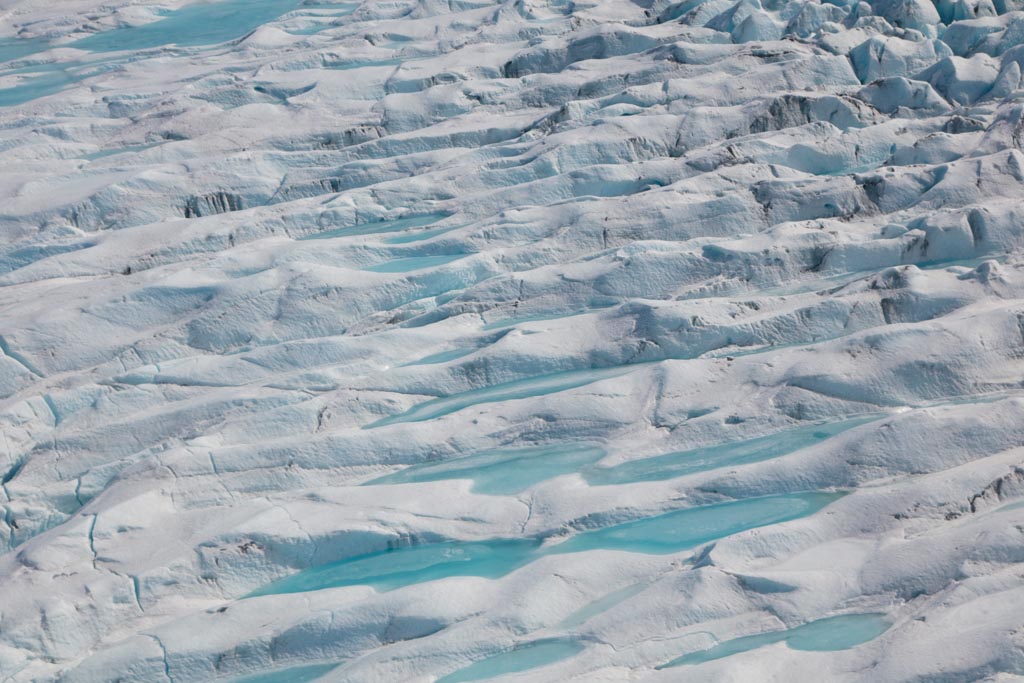
Helicopter/Flight
Of course, if you’re visiting in the summer, late spring, or fall taking a helicopter from Knik Glacier Tours and landing on the glacier will be your best bet. Flight tours are possible year-round, weather permitting.
Book a Knik Glacier helicopter flight, including a landing.
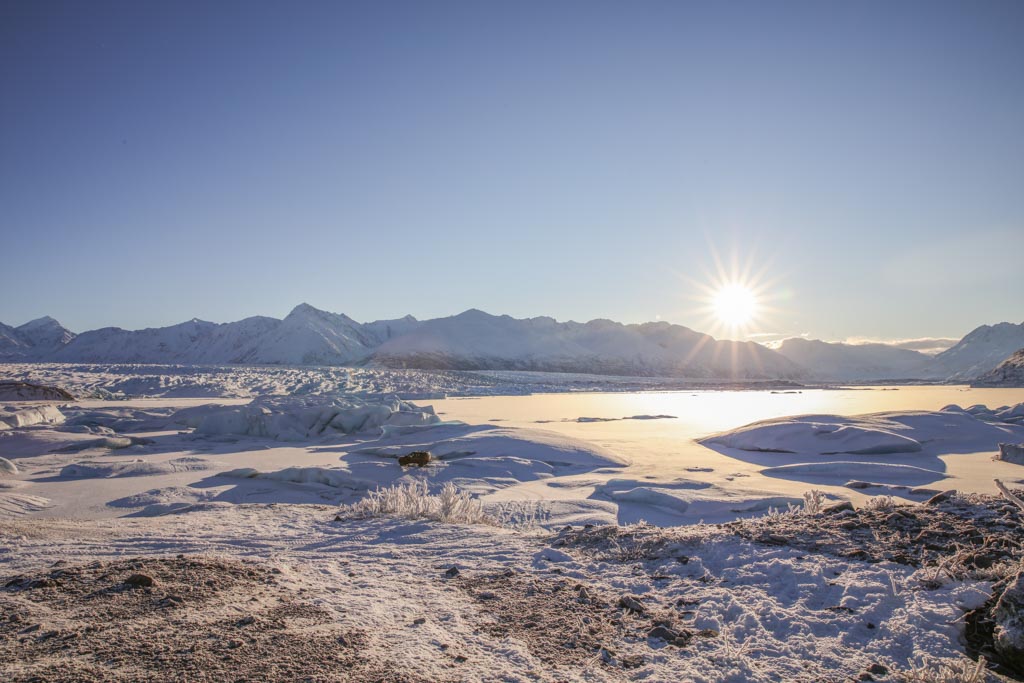
4WD & Snowmachine/ATV
A 4×4 trail from Jim Creek allows access for those wanting to visit using a vehicle. This route is about double the length of the trailhead from Hunter Creek.
We went by 4WD back in 2019. Plan for a full day to drive there and back and spend some time at the glacier.
Note that in 2020, a jeep broke through the ice on the lake close to the face of the glacier, so do take caution.
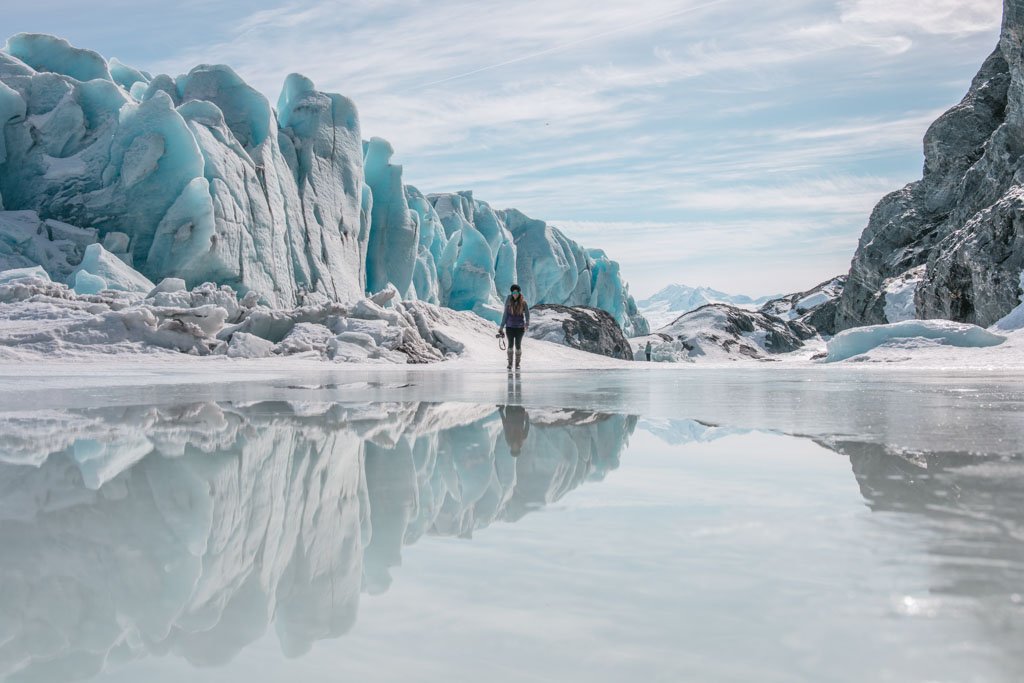
Knik Glacier Trailheads
Hunter Creek Trailhead
The Hunter Creek Trailhead is the main starting point for fat tire bikers. To get to the trailhead, you’ll take the Old Glenn Highway exit from the Glenn Highway, follow the Old Glenn for a few miles until a bend in the road just before the bridge crossing Knik River.
At the bend, you’ll continue onto E Knik River Road and stay on the road for a few miles. At Ed Rush Road take a left and then a right onto Buckshot Lane. Follow Buckshot to the end and you will find Knik Glacier Tours’ Fat Tire Access parking lot and the trailhead.
Jim Creek Trailhead
To reach the Jim Creek Trailhead you’ll take the Old Glenn Highway exit, but instead of peeling off at E Knik River Road, you’ll continue across the bridges staying on the Old Glenn.
Head east on Sullivan Road and you’ll reach the Jim Creek Trailhead parking lot on the right side of the road. Note that there $5 per vehicle parking fee if you plan to leave a vehicle in the lot.
Biking to Knik Glacier
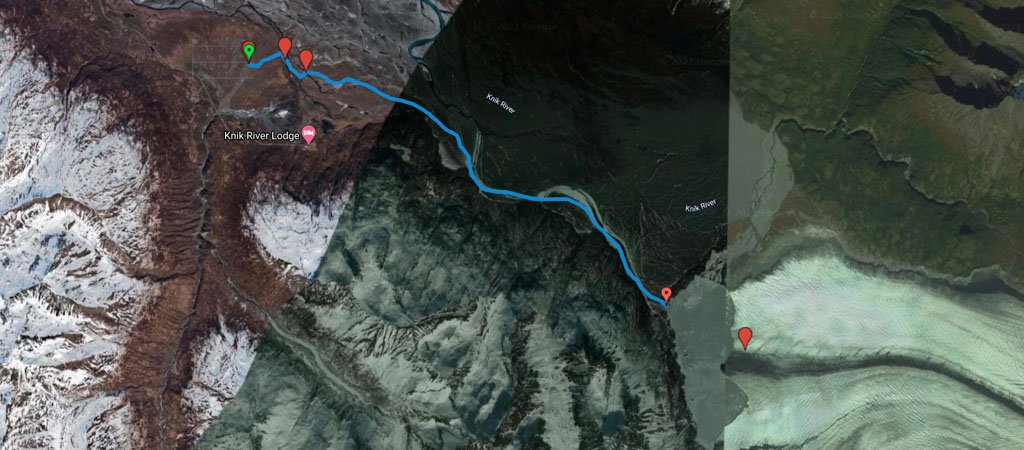
Distance
8.5 miles each way (to the lake)
Time
3-6 hours for the average biker
I’m going to cover fat tire biking to Knik Glacier via the Hunter Creek access as that is how I’ve done it. It’s possible to go from the Jim Creek Trailhead, but know that it’s about 50 miles roundtrip.
From the trailhead, you’ll first cross a section of private land so do try not to veer from the trail.
About 0.5 miles in you’ll reach Hunter Creek where you’ll need to either ride or wade across. The water isn’t very deep here, about 6 inches, but I’d recommend wearing a waterproof rain boot and gaiters to keep your feet dry, friends said that instead, they brought trash bags to put over their feet to keep dry. You will also want to pump your bike breaks immediately after crossing to prevent them from freezing up.
Roughly another 0.5 miles or so later you’ll have to cross a small offshoot of the Knik River, so follow the same procedure above. The water was a little deeper here than at Hunter Creek but maybe by a couple of inches or so.
Once across, you’ll be on the main ATV trail. At around 4 miles you’ll reach the main Knik River. From here you’ll follow the river back to arrive at the lake in front of Knik Glacier. If the ice seems sketchy at all or is too uneven you can take a path on the gravel bank.
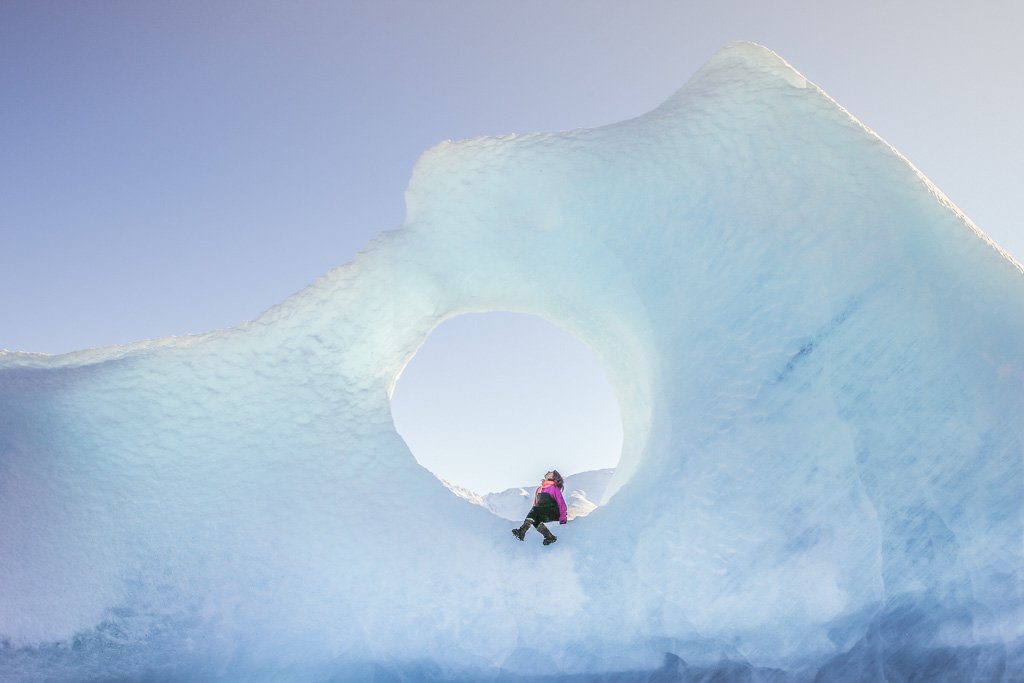
Exploring Knik Glacier
On the frozen lake you’ll find clusters of icebergs to explore and then of course the 5 mile long face of Knik Glacier. Do take caution while exploring the glacier as there have been people who have fallen through the ice.
This route to the edge of the lake is roughly 15 miles return, however, you’ll easily tack on an additional 5 or so miles riding around the lake and checking out the glacier and icebergs.
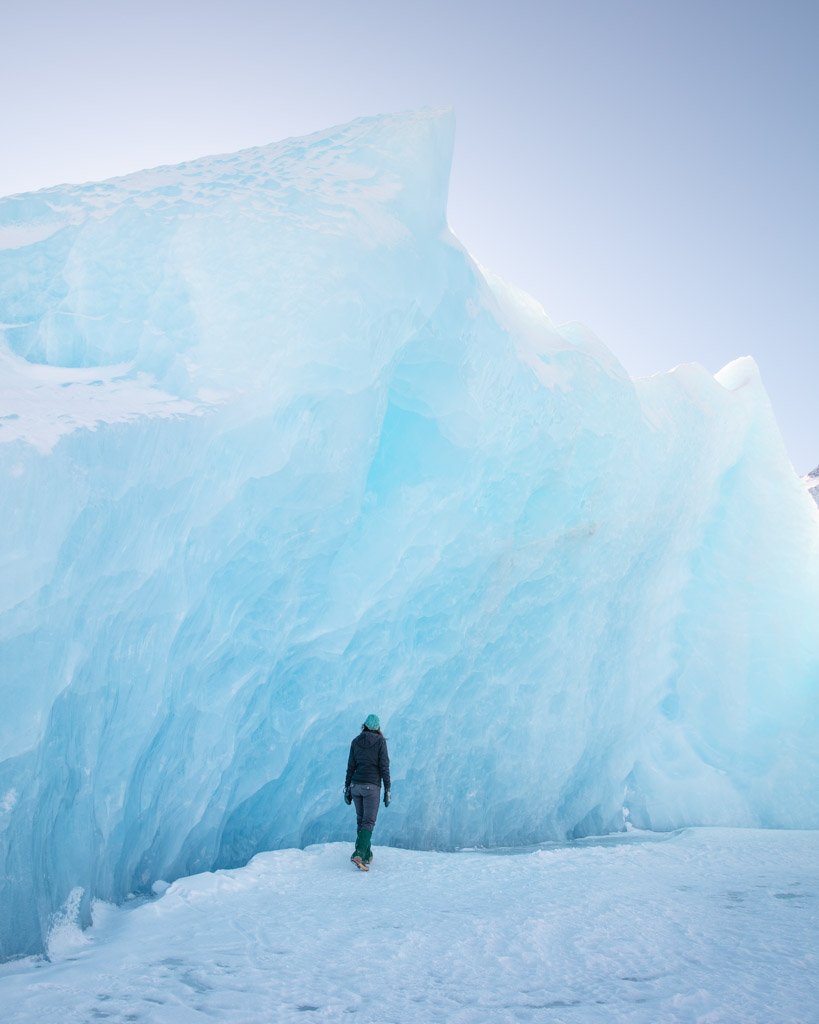
Where To Rent A Fat Tire Bike
Anchorage
- Downtown Bicycle Rental: $35 for 24 hours, $25 if you pick up and return the same day.
- Trek Bicycle Store: $45 per day.
- APU: $45 per day.
Wasilla
- Alaska Bicycle Center: $35 per day.
Palmer
- Backcountry Bikes: $60 per day.
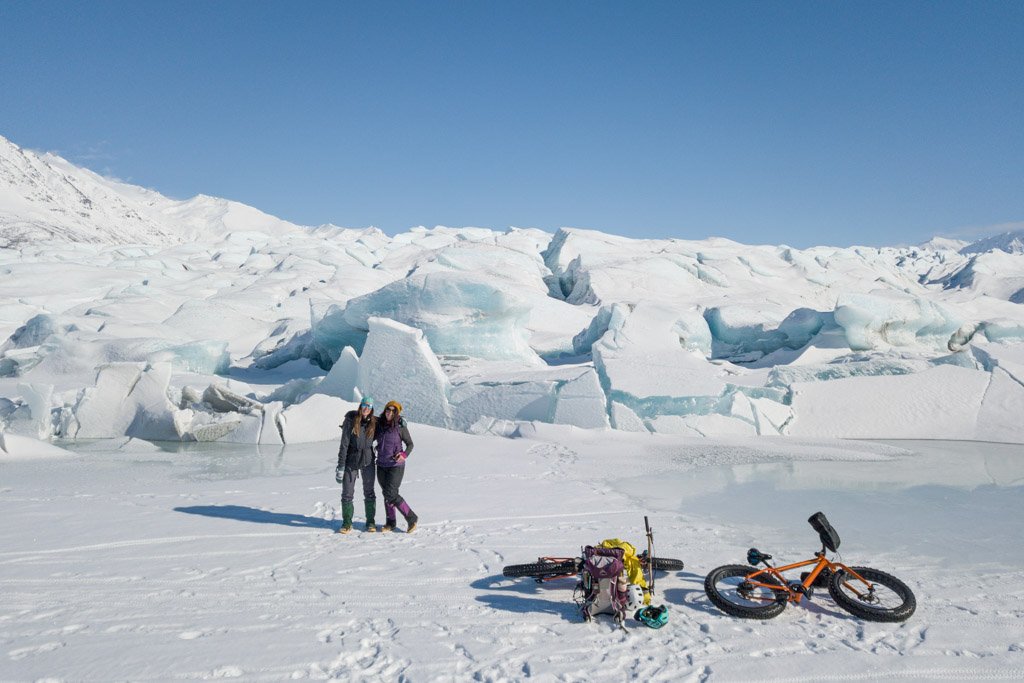
What to Pack
- Fat tire bike (studded tires are advised)
- Repair kit
- Helmet
- Waterproof boots
- Sunglasses or goggles
- Hat and gloves
- Pogies
- Neck gaiter
- Hand and feet warmers
- Layering clothing
- Sunscreen
- Water and snacks
- Trash bags (if you don’t have waterproof boots)
Have any questions about fat tire biking to Knik Glacier?
Ask in the comments section below.
